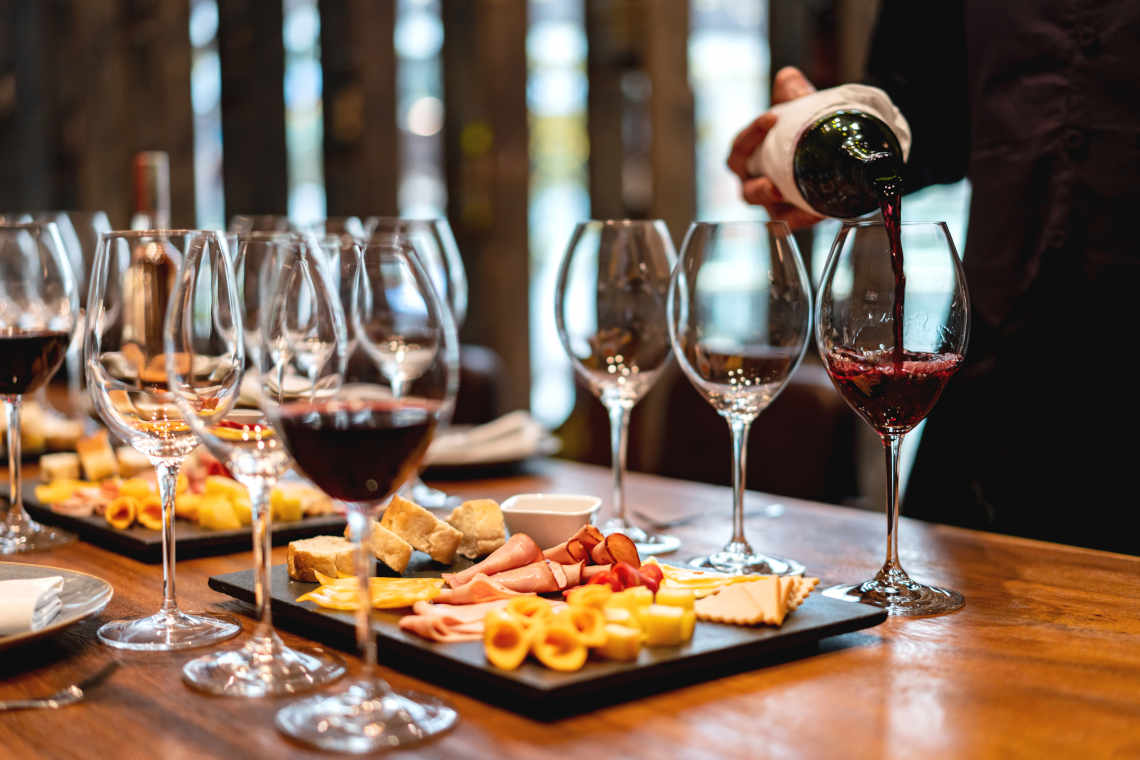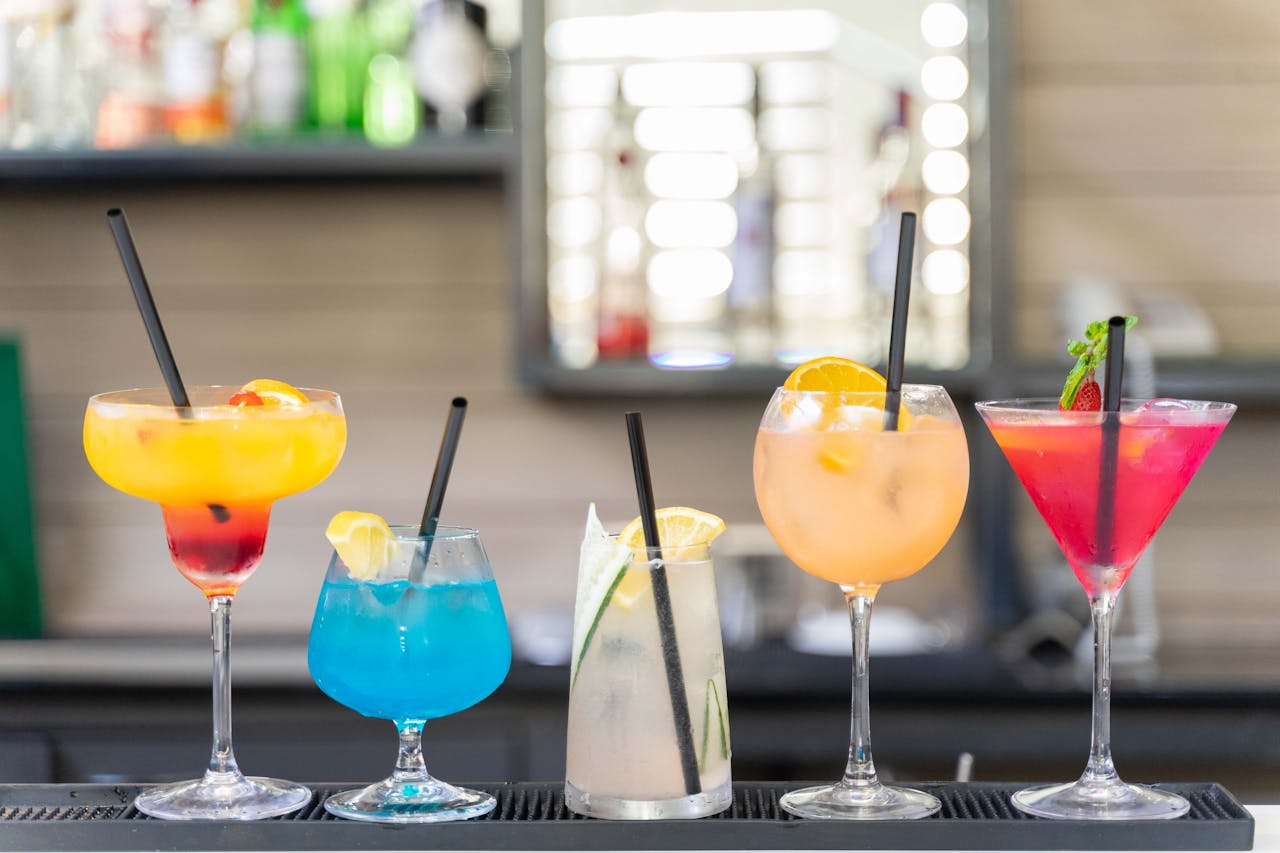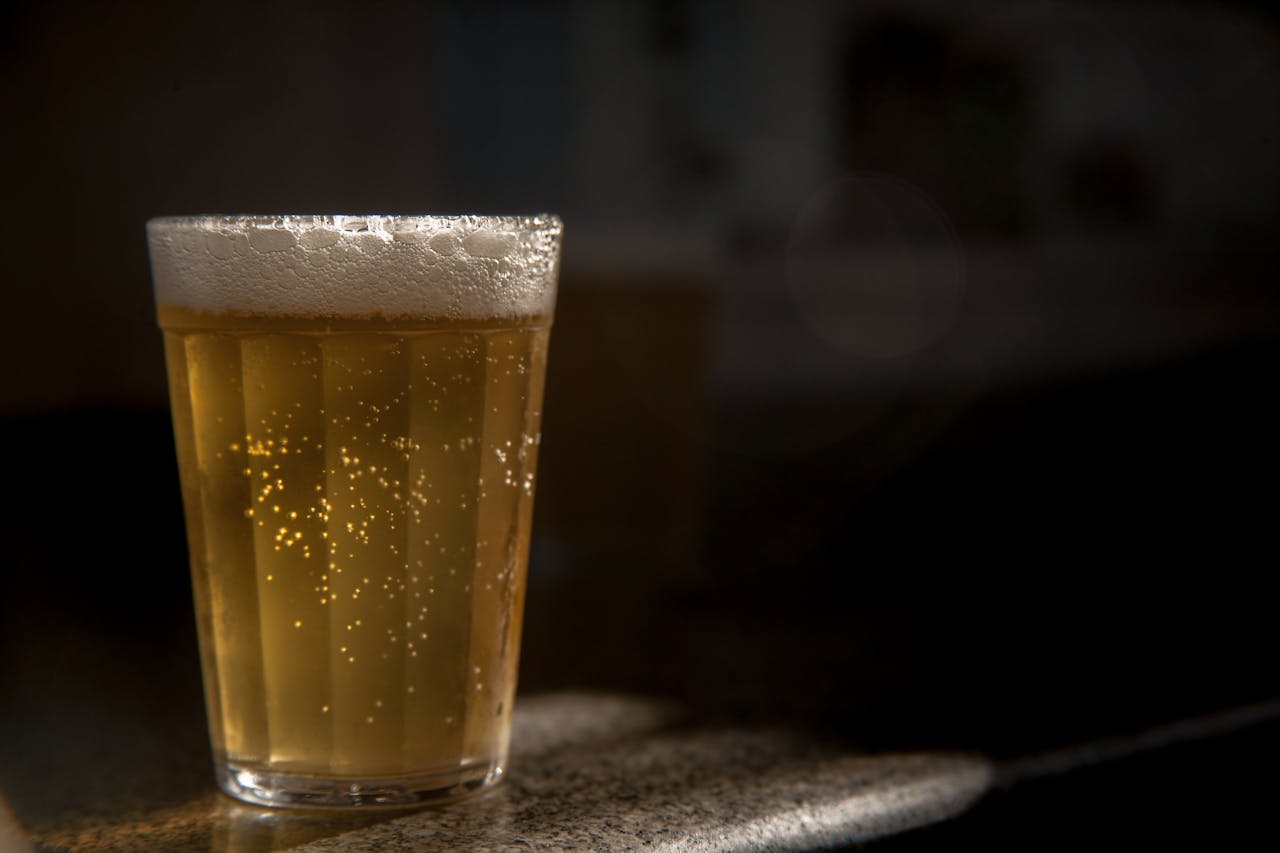Focus Groups on Alcohol: Alcoholic and Non-Alcoholic Beverages

As preferences and trends shift, brands need to stay attuned to what their customers want – and focus groups on alcohol provide a powerful tool to gain in-depth insights into consumer preferences, motivations, and perceptions. Through these discussions, alcohol brands can better understand their target audience, explore emerging trends, and make informed decisions that align with market demands.
Understanding Consumer Preferences in Alcohol Consumption
Focus groups on alcohol uncover detailed insights into consumer preferences. By bringing together diverse participants, these sessions provide alcohol brands with invaluable feedback on taste, packaging, and overall experience.
Different regions exhibit varied preferences when it comes to alcohol consumption. For instance, in the U.S., craft beers and premium spirits have grown in popularity, while European markets may lean toward wine and traditional alcoholic beverages. Therefore, focus groups on alcohol enable brands to tailor their products to these regional differences, ensuring they meet the demands of local consumers.
Moreover, these focus groups are essential for identifying emerging trends. As consumers’ tastes evolve, brands must stay ahead by adapting to new preferences, whether it’s low-alcohol options or unique flavor combinations. This dynamic feedback from focus groups on alcohol allows businesses to innovate and remain competitive in the ever-changing beverage market.
The Importance of Focus Groups in Alcohol Market Research

กลุ่มเป้าหมาย on alcohol are invaluable in the alcohol market because they offer deep, qualitative insights that other research methods, such as surveys or analytics, often miss. While quantitative data can show broad consumer trends, it doesn’t always explain the “why” behind those trends. Focus groups on alcohol allow brands to explore the motivations, attitudes, and emotional drivers influencing purchasing decisions, helping brands better understand their target market.
For example, in a typical focus group, participants can provide detailed feedback on what they like or dislike about a particular product’s taste, packaging, or branding. This direct interaction helps uncover nuanced preferences that may be difficult to capture through other methods. Additionally, focus groups allow for interactive discussions, enabling participants to build on each other’s ideas, frequently resulting in richer insights.
Another key advantage of focus groups on alcohol is the ability to gauge consumer reactions to new or experimental products before they hit the market. Brands can introduce prototype beverages, new flavors, or packaging concepts to see firsthand how consumers react. This early feedback is critical in preventing costly mistakes and ensuring that products resonate with consumers.
Moreover, focus groups on alcohol are particularly useful for exploring emerging trends in the industry, such as the rise of low-alcohol, no-alcohol, and craft beverages. These niche markets are rapidly growing, and focus groups provide a platform to understand the specific preferences of consumers driving these trends. Insights from such discussions can guide product development, branding, and marketing strategies, ensuring that brands stay ahead of the curve.
Key Insights Gained from Focus Groups on Alcohol
Focus groups on alcohol provide numerous insights that can shape product offerings and marketing strategies in the alcohol industry. Here are some of the key areas where focus groups help brands gain a deeper understanding:
- การตั้งค่าของผู้บริโภค: Brands can learn whether consumers prefer a sweeter or more bitter taste, what type of packaging design catches their eye, or how they feel about the product’s sustainability. These insights allow brands to adjust their product offerings to align with consumer desires.
- Brand Loyalty and Switching Behavior: Through focus groups on alcohol, brands can explore the reasons behind customer loyalty or what drives them to switch to competing products. Understanding why consumers stick to a particular brand—whether due to taste, marketing, or perceived quality—helps brands strengthen their relationships with existing customers.
- Trends in Alcohol Consumption: Recent shifts towards low-alcohol and no-alcohol beverages, craft spirits, or health-conscious options can be explored in detail. For example, participants in focus groups on alcohol may express growing interest in beverages that align with their lifestyle choices, such as gluten-free or organic options.
- Cultural and Demographic Variations: Focus groups on alcohol allow brands to segment their audience based on age, gender, location, or lifestyle, revealing specific preferences in each segment. For example, younger consumers may prioritize trendy packaging, while older consumers focus on the quality of ingredients.
Product Development and Branding Insights

Focus groups on alcohol refine product development and branding strategies. By engaging directly with target customers, companies can gather immediate feedback on aspects such as taste, packaging, and presentation, which is crucial for fine-tuning before launching a product to the broader market.
Consumers participating in focus groups on alcohol provide real-world insights into how branding elements, such as logos, slogans, and color schemes, resonate with their perceptions of quality and value. This feedback helps brands craft a stronger connection with their target audience, ensuring their messaging and visual identity align with consumer expectations.
Additionally, these focus groups are an effective way to assess the success of packaging designs. Whether a product is positioned as premium, eco-friendly, or mass-market, the feedback on labeling, materials, and overall presentation can make or break a product’s reception in a competitive marketplace.
Focus Groups: Alcoholic and Non-Alcoholic Beverages
With increasing consumers seeking healthier alternatives, focus groups play a vital role in guiding brands as they venture into new product categories, including low-alcohol and non-alcoholic options. By leveraging these focus groups, brands can better understand the motivations behind consumer choices, such as a preference for moderation or health-conscious decisions.
In these sessions, participants share their expectations and preferences for alcoholic and non-alcoholic offerings. Focus groups on alcohol allow companies to test innovative flavors, assess the appeal of non-alcoholic beverages, and explore how well these alternatives fit into social settings traditionally dominated by alcoholic drinks.
Moreover, focus groups on alcohol help brands determine how to market these new products. They offer insights into effective messaging that highlights the benefits of non-alcoholic beverages, such as health advantages, without alienating traditional consumers of alcoholic products.
Regulatory Considerations and Consumer Safety
One key area is the labeling and health warnings associated with alcohol. Focus groups provide insight into how well consumers understand and respond to mandatory labels regarding alcohol content, consumption limits, and potential health risks. This feedback is essential for alcohol brands to meet legal requirements while maintaining a positive brand image.
Additionally, consumer safety is a growing concern in the alcohol industry, particularly with increasing awareness around responsible drinking. Focus groups on alcohol allow brands to gauge how consumers react to safety campaigns, warnings about excessive consumption, and efforts to promote moderation. This input helps companies balance regulatory compliance with marketing strategies that align with public health goals.
How to Test Alcoholic and Non-Alcoholic Beverages in Focus Groups in New York

New York’s diverse consumer base makes it an ideal location for testing alcoholic and non-alcoholic beverages through focus groups. It allows businesses to gather valuable insights on taste preferences, packaging appeal, marketing effectiveness, and product perception. Therefore, conducting focus groups in such a dynamic market enables companies to tailor their beverage offerings to meet local and national consumer expectations – and here’s how businesses can effectively test their beverages in New York focus groups:
1. Leverage New York’s Diverse Demographics
New York’s population offers various demographic and lifestyle segments that beverage companies can target. New York offers a cross-section of almost every consumer profile, from health-conscious consumers interested in non-alcoholic beverages to those with preferences for craft beers or premium spirits. By organizing focus groups that target specific groups—such as Millennials, Gen Z, or affluent professionals—brands can gain detailed insights into how different demographics respond to their products.
2. Evaluate Flavor Profiles and Taste Preferences
Testing the flavor of beverages is central to the success of alcoholic and non-alcoholic products. Focus groups provide an ideal setting for taste tests, where participants can compare different flavors or formulations in a controlled environment. For alcoholic beverages, brands can explore preferences for various types of drinks—such as craft beers, wines, or spirits—and determine how well their product stacks up against competitors. For non-alcoholic beverages, companies can test new formulations for energy, juices, or wellness drinks to see how flavors resonate with the target audience.
3. Test Packaging Design and Branding Appeal
Businesses can present different label designs, bottle shapes, and packaging materials to participants and gather feedback on what attracts them the most. This is especially important for brands looking to appeal to environmentally conscious consumers, as focus groups can reveal whether sustainable packaging options hold significant sway in purchase decisions. By understanding what visual elements appeal to New Yorkers, brands can craft packaging that stands out on the shelves in a highly competitive marketplace.
4. Gauge Responses to Marketing and Product Positioning
In addition to testing the beverages themselves, companies can use focus groups to assess how well their marketing messages align with consumer expectations. Brands can present various advertising concepts, slogans, and promotional campaigns to participants and see which ideas resonate most strongly. For alcoholic beverages, brands may test how their product is positioned—whether as a premium, artisanal product or as an affordable, everyday option. Non-alcoholic beverages may focus on health-conscious messaging, energy-boosting claims, or lifestyle alignment.
5. Compliance with Alcohol Regulations
When testing alcoholic beverages in New York focus groups, it’s critical to comply with local and federal regulations regarding alcohol consumption and advertising. This includes ensuring that participants are of legal drinking age and that any focus group involving alcoholic beverages adheres to safety and legal guidelines. On the other hand, non-alcoholic beverages offer more flexibility but still require attention to health-related claims and compliance with food and beverage safety standards.
How SIS International’s Focus Groups on Alcohol Help Businesses
เอสไอเอส อินเตอร์เนชั่นแนล‘s focus groups on alcohol offer businesses a powerful tool for gaining deep insights into consumer behavior, product preferences, and market trends. These focus groups allow companies to engage directly with their target audiences, collecting valuable feedback that helps shape their business strategies.
ข้อมูลเชิงลึกของผู้บริโภค
SIS International’s focus groups on alcohol provide businesses comprehensive insights into consumer preferences, behaviors, and attitudes. This allows companies to tailor their products and marketing strategies to better meet the demands of their target audience.
Minimized Product Launch Risks
By testing new alcoholic and non-alcoholic products through focus groups, businesses can refine their offerings before market introduction, reducing the risks of product failure and ensuring a stronger market fit.
Tailored Regional Analysis
SIS International’s global expertise ensures that focus groups are designed to capture regional differences, allowing businesses to understand and respond to local preferences, cultural influences, and regulatory requirements.
Effective Brand Positioning
With SIS’s guidance, businesses can test and optimize branding strategies, ensuring their products resonate with consumers and stand out in a crowded marketplace.
Actionable Feedback on Marketing Campaigns
Focus groups offer immediate and relevant advertising, packaging, and promotional materials feedback, enabling businesses to fine-tune their campaigns for maximum effectiveness.
Strategic Innovation Guidance
SIS International’s expertise helps businesses stay ahead of trends by identifying emerging consumer needs and preferences, fostering innovation in alcoholic and non-alcoholic beverages.
เกี่ยวกับ เอสไอเอส อินเตอร์เนชั่นแนล
เอสไอเอส อินเตอร์เนชั่นแนล เสนอการวิจัยเชิงปริมาณ เชิงคุณภาพ และเชิงกลยุทธ์ เราให้ข้อมูล เครื่องมือ กลยุทธ์ รายงาน และข้อมูลเชิงลึกเพื่อการตัดสินใจ นอกจากนี้เรายังดำเนินการสัมภาษณ์ การสำรวจ การสนทนากลุ่ม และวิธีการและแนวทางการวิจัยตลาดอื่นๆ ติดต่อเรา สำหรับโครงการวิจัยการตลาดครั้งต่อไปของคุณ

